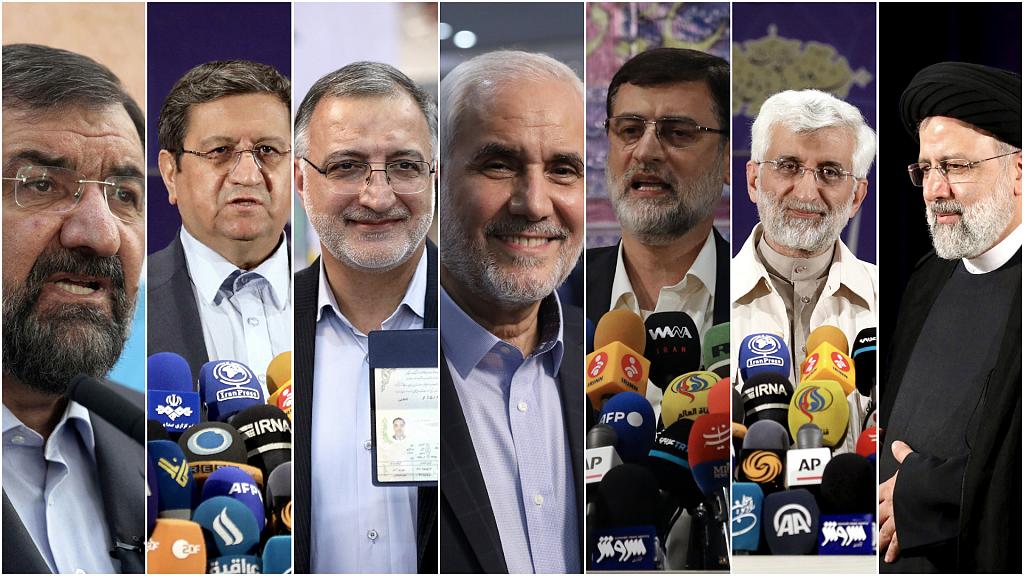Among hot-button issues that all candidates say are high on their agenda are plans to salvage the country’s economy and promote public welfare.
Tough economic conditions and the pressure of inflation on people have turned promises of economic prosperity into one of the candidates’ most important slogans.
The candidates’ economic pledges are as follow:
Ebrahim Raisi:
– Fighting corruption in all sectors
– placing production as top priority and planning to push the cash flow toward production
– setting up a coordinated economic team
– implementing real privatization
– cutting medical treatment costs by a half
– managing the market
– creating one million jobs per year by tapping into the 70% available economic potential in the country and also by utilizing the potentialities of the housing sector, cyberspace and the country’s seas
– reducing the inflation rate to a single-digit one
Saeed Jalili:
– reforming the distribution system and providing a proper food basket containing 13 types of staple foods such as beef and chicken for all citizens
– Solving the problem of inflation through “resistance economy” and extensive interaction with foreign countries
– reforming economic plans with the help of the youth, researchers, prominent university professors, successful managers, craftsmen and owners of different industries
– rationing all energy commodities within the framework of a program called “One”
– arranging 3-day trips for all families and 5-day trips for all young newlyweds
Mohsen Rezaei:
– setting up a fund to indemnify stock market investors for their losses
– reforming subsidies and making them smart
– raising subsidies to Rls. 4.5 million per person (When we speak of paying 4.5 million rials in subsidies, it has a scientific basis and it is practical. We save $8 billion, which will be paid to Iranian families as subsidies amounting to Rls. 4.5 million for each person. Families included in the low-income deciles of the Iranian population will receive subsidies)
– controlling prices and curbing inflation
– paying 90% of the cost of purchasing homes by banks
– creating a new job called housekeeping and developing domestic jobs (jobs done at home)
– establishing economic states by vesting economic executive powers in provinces
– developing the tourism industry in Iran
Alireza Zakani:
– removing all obstacles to production, namely removing the banks’ noose from the production’s neck
– solving problems in the industry and agriculture sectors
– tapping into the potential outside the country as a major opportunity to overhaul the economy
– developing mines and the port city of Chabahar
– paying attention to the potentialities of Iranian expatriates
Amirhossein Qazizadeh Hashemi:
– paying Rls. 5 billion in marriage loan after the establishment of the Youth’s Welfare Fund
– solving the problem of the capital market in three days
– reducing the inflation rate to a single-digit one and bringing it to below 5%
– planning to provide 4.5 million homes across the country and provide housing for the three lowest-income deciles of society and designating 30-year instalments for the indigent
– fighting smuggling and the black market
– reforming the economy, creating job stability for journalists and offering subsidies to those active in the domain of culture
Abdolnasser Hemmati:
– politics for economy
– salvaging the country’s economy and reforming its structure by a government led by an economist
– bringing about positive economic growth and increasing people’s welfare
– increasing cash subsidies
– developing financial markets, especially the capital market
– circumventing sanctions by joining the Financial Action Task Force (FATF)
– the government distancing itself from economic activities and creating a competitive economy
– paying attention to workers’ livelihood
– boosting the value of the national currency
Mohsen Mehralizadeh:
– making the economy as transparent as an aquarium
– eliminating the root causes of inflation and stopping the growing trend of inflations in 3-4 months after the formation of the cabinet
– refusing to issue money to address budget deficit
– bringing the budget’s dependence on oil to zero
– making the economy competitive by reducing the government’s role
